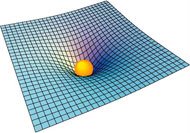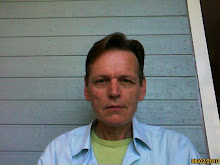 By Adrian Cho
By Adrian ChoScienceNOW Daily News
13 February 2006
Eight years ago, astronomers and astrophysicists announced a radical finding. They had studied stellar explosions called type Ia supernovae and found that the farthest ones were so distant that the universe must be expanding at an ever greater rate (ScienceNOW, 26 February 1998). That suggested some form of dark energy is stretching spacetime, a hypothesis reinforced by measurements of the microwave afterglow (ScienceNOW, 11 February 2003) of the big bang and the clustering of galaxies (ScienceNOW, 18 May 2004). Yet, no one knows what the weird stuff might be.
Now theorists report that the cosmic acceleration might be explained by gravity alone, without the need for dark energy. According to Einstein's theory, spacetime bends and warps in the presence of matter and energy, producing the effects we call gravity. In general relativity, the density of energy and matter essentially equals the curvature of spacetime. But in recent years, researchers have toyed with equations that include not only a term proportional to the curvature but also inverse powers of the curvature.
Those terms are small when spacetime is tightly curved and gravity is strong, so they don't mess up gravity within the solar system. But on gargantuan scales where the curvature is small and gravity is weak, the terms might drive an accelerating expansion. One of the theories can account for the supernova data and does not run afoul of other observations, report Olga Mena and José Santiago of the Fermi National Accelerator Laboratory in Batavia, Illinois, and colleagues in 3 February issue of Physical Review Letters. However to fit the data, the theory must still include a type of unobserved matter called "dark matter" Santiago says.
"I'm surprised that it works so well," says Sean Carroll of the University of Chicago in Illinois, who developed the theoretical model upon which the researchers based their work. Such theories are ad hoc and not meant to be the final word, Carroll says. But they might give theorists vital clues about how to construct a fundamental theory without dark energy, which might be more appealing conceptually. Santiago says the next step is to test the theory against the subtler microwave-afterglow and galaxy-cluster data.
Related sites
---
source: ScienceNOW

No comments:
Post a Comment